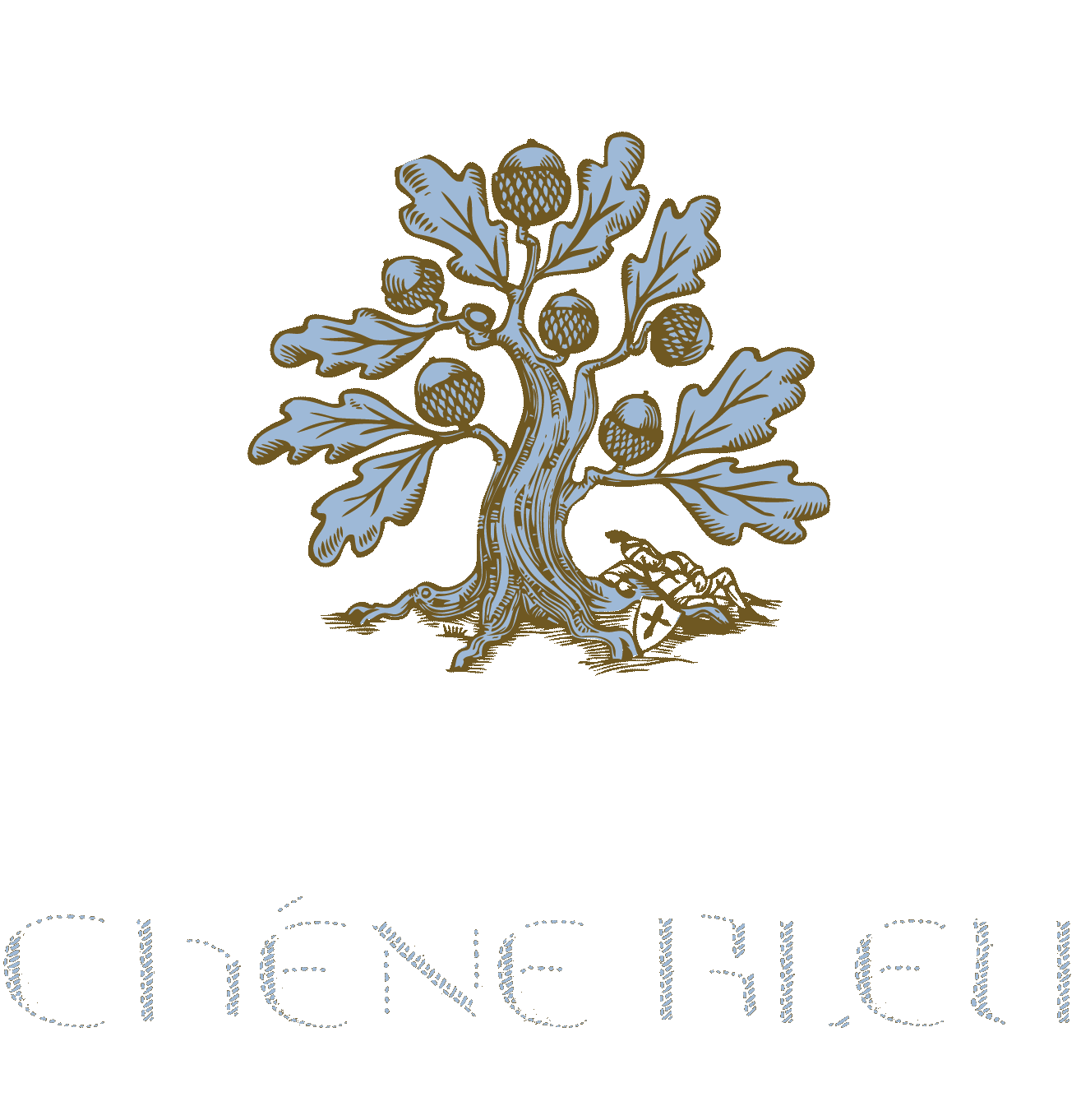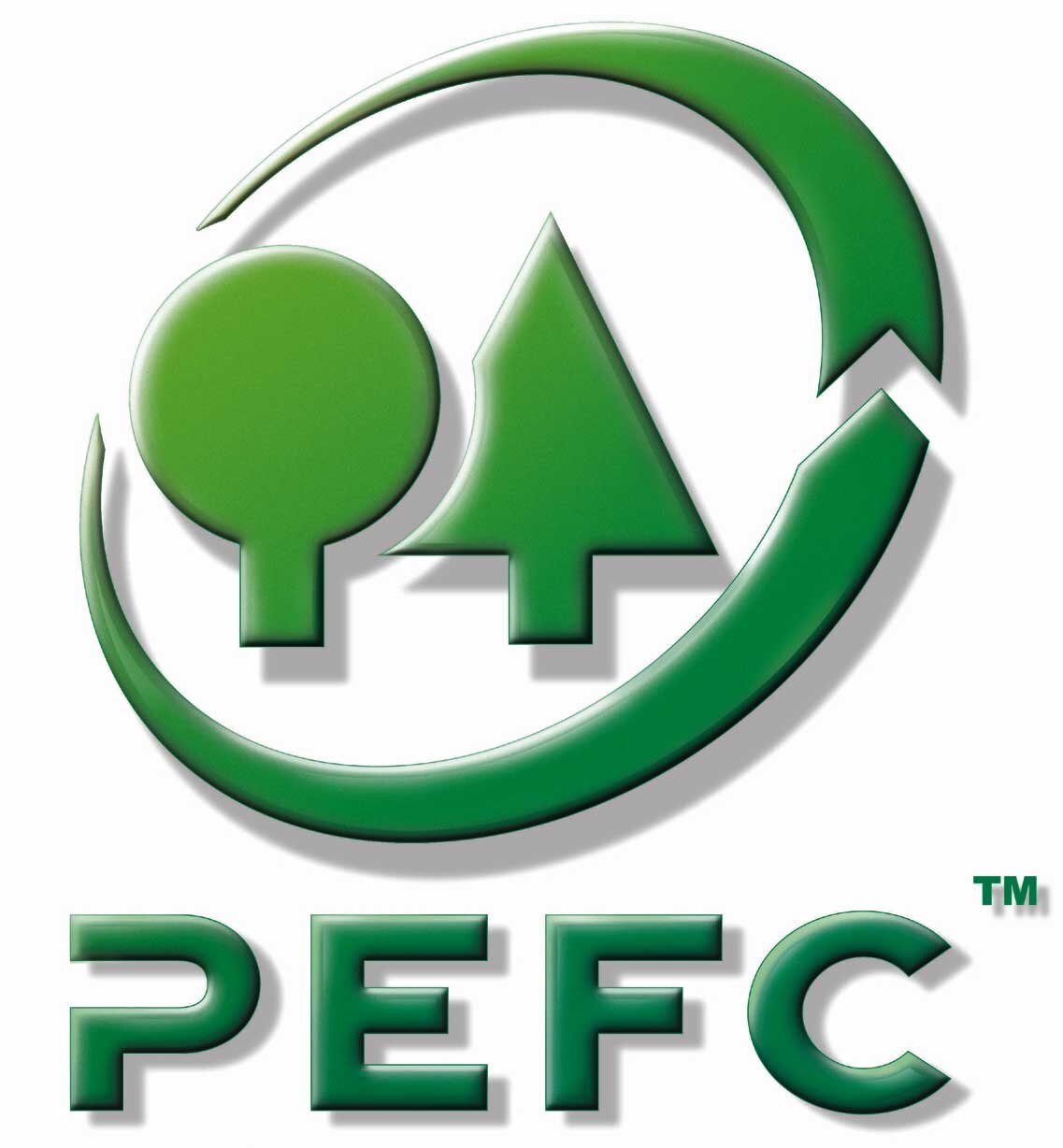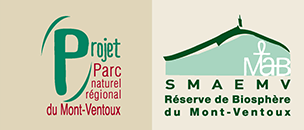In the vineyard, we don't use any synthetic chemical pesticides, herbicides or fertilizers. Instead, we rely on our own work to strengthen the biodiversity, improve our vines' resilience, support the microbiome and our SustainaBEElity program. All ploughing has been stopped to allow organic life to redevelop in the soil.
These are the walls of the original medieval orchard. We restored them and planted all sorts of organically and biodynamically produced fruits and flowers-- forgotten varieties of tomato, odd-shaped squashes, and unusual types of mint… some sourced at the annual Rare Plants and Natural Gardens fair in Serignan-du-Comptat.
Most of the food we don’t produce ourselves is sourced from trusted local partners and artisans. In season, we serve ‘farm-to-fork’ meals and picnics at the winery using mainly fruits and vegetables from our "potager" (vegetable garden), lamb from our shepherd’s flock and locally-sourced cheeses.
An age-old technique to filter water waste from the winery: plant a bamboo forest! The wastewater is sent to our half-hectare bamboo plantation, where it passes through the rhizomes. Microorganisms degrade the organic matter, allowing pure water to return to nature. This has very low energy demands and doesn't require any chemicals.
This is our apiary. We’re expanding it using our SustainaBEElity crowdfunding program, to help strengthen the vineyard through the biodiversity of cross-pollinating plants. We’re tripling the size of the apiary and embarking on a study with world renowned scientists that could make a roadmap for other winemakers to wean themselves off chemicals.
How to reconcile farming and forest management? We're certified PEFC forest management partners, which means we collaborate with forest authorities to do just that, actively managing the underbrush, protecting wildlife corridors, etc.
Our public-private partnerships with Avignon University and with the SMAEMV biologists of the UNESCO Mont Ventoux Biosphere result in mutually beneficial scientific exchanges.
We seek to educate others about the essential role of our ecosystem through the symbols in our label, like the ‘Show me the Bunny’ hunt. Our beloved Blue Oak tree is also a metaphor for our efforts to protect and preserve the natural environment, even though it is no longer standing.
77% of the estate's 135 hectares is reserved for biodiversity development. Most of it is forest fauna and flora, but also wastelands, meadows, olive trees, lavender and pastures – all cultivated using organic methods. This land also creates a natural barrier to pollution around the 30 hectares of vineyard.
In the Middle Ages, our spring was said to have miraculous properties, curing eye diseases. It still appears on Vatican's maps, resulting in pilgrims’ visits. Miracles aside, our water is considered ‘very tasty’ and ‘alive’. The lifeblood of La Verrière, it is tested often and is rich in minerals and metals, especially iron.
The estate employs only water-efficient technology: low-flow nozzles, pressurized water jets, compressed air cleaning machines, and foam canons.
We make our own compost from the garden and most biological residues. The grape stems are composted and used in the vegetable garden; the vine shoots are puréed and spread on the vines. The wine's leftover marc, which cannot be composted, is given to state distilleries to be recycled instead.
The PEFC-certified barrels arrive new at the winery. They’re used for three years before being recycled to another winery.
Chêne Bleu uses top quality biodegradable packaging materials, such as our glass bottles and natural corks, which are also PEFC-certified.
We use organic and biodynamic methods to do that, and have received Level 3 (highest level) of ‘HVE’ certification (Hautes Valeurs Environnementales, the most recognized Sustainable Viticulture standard in France), as well as ‘BEE Friendly’ since our practices are certified a safe habitat for our bees.
To restructure, purify and ventilate your soil: seed cereals such as rye or vetch before each vine. We also introduced sorghum to break down stones in the soil and provide needed mulch. As a result, microorganisms that had disappeared from most soils in France started to reappear in the vineyard.
Our work with Claude and Lydia Bourguignon, renowned soil experts, has allowed us to identify, catalogue and protect the thousands of microorganisms living in our soil. These make up the exceptionally vibrant microbiome, which nurture soil health and contribute to the complexity of the grapes’ flavors and their sense of place.
The Wild Boar Spa we created in the woods behind the pond provides a shady, muddy, protected watering hole for the wild boars. It also helps keep them away from the vineyard.






















